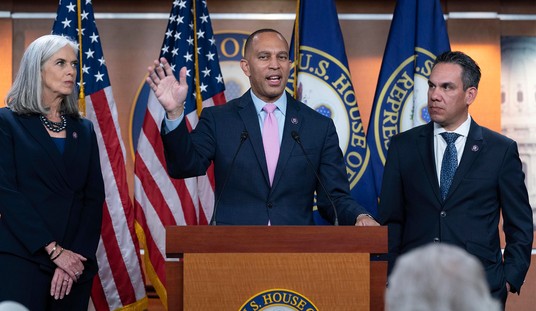We had an opportunity to draw a sharp contrast with Democrats over the all important issues of crony capitalism and market distortions simply by doing nothing. How so? Well, the Export-Import Bank reauthorization deadline is May 31. By simply abstaining from the reauthorization – something that can be done with control of just one-half of one-third of government – this bastion of corporate welfare would be relegated to the ash heap of history.
Unfortunately, Eric Cantor decided to snatch defeat from the jaws of victory and agree to reauthorize the bank. Worse, the bank’s lending cap will be expanded. The funny thing is that they are calling it a compromise. The compromise went something like this: Originally, Democrats wanted the loan cap raised from $100 billion to $140 billion. Cantor, instead of opposing the underlying reauthorization, agreed to raise the cap to $113 billion. So they came to an agreement to gradually raise the loan cap to $140 billion by 2014!
In a preposterous effort aimed at improving transparency, the bill contains a provision that would require the bank to solicit public comment on any transaction more than $100 million. This will ostensibly give companies an opportunity to voice opposition to loans granted to their competitors, while supporting those that benefit their needs. This is what happens when government is used as a tool to manipulate private enterprise.
GOP proponents of the bank claim that the interest on the loans could bring in profits to taxpayers. But the problem is that they are using the same illusory accounting methods that have been employed to ameliorate the costs of the bailouts to Freddie/Fannie and TARP. In fact, just three months ago House Republicans passed a law to subject all Freddie/Fannie loan guarantees to the “fair value” accounting method that is used in the private sector. Under current law, Congress only factors in the cost of the loan itself when formulating the annual budget. Perforce, if the money is paid back with interest, there is no cost to the government. However, as we have learned so painfully, the loans are, all too often, never paid back. Taxpayers have been called on to bailout a modicum of failed loan guarantees. In the private sector, they use “fair value” accounting in calculating the costs of credit programs. Fair value accounts for the costs of the market risk the lender incurs by issuing a loan, in addition to the actual borrowing costs.
So why are these same people supporting deceptive accounting methods for the Export-Import Bank?
GOP leaders are so confident that this travesty will pass the Republican House that they plan to fast-track it and bring up the reauthorization bill (H.R. 2072) under suspension later this afternoon. A suspension vote needs a 2/3ds majority to pass (290 votes, instead of 218).
This will be a seminal vote that will separate out those members who support the free-market vs. those who support government-run commerce. The entire purpose of this “bank” is to use taxpayer funds to subsidize businesses that sell products to foreign markets. These are businesses that are too weak to obtain loans in the private market, and require taxpayer bailout funds to make them competitive. To the extent that the bank helps create jobs, it merely moves them from one sector to another. At the risk of sounding like a broken record, government should not be in the business of picking winners and loser in the market. The Heritage Foundation has aptly branded the bank as “the Fannie Mae for exporters.” For a full summary of the anti-free-market policies that are inherent in the Ex-Im Bank, please read more from Brian Darling here.
Call your members of the House and request that they vote no on HR 2072. Instead of winding down the “bank,” as even its supporters have promised, this bill will expand its reach. We only need 146 no votes to defeat this bill. Find out if your member is part of the Solyndra economy or the open economy.













Join the conversation as a VIP Member